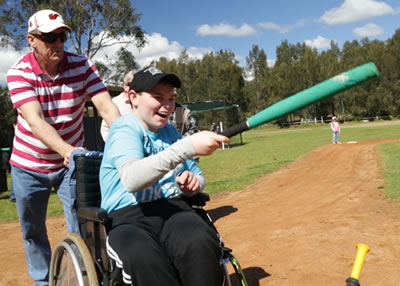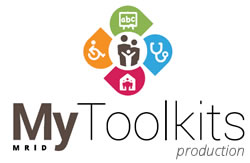
Co-Design requires a willingness to not just think outside the box but, sometimes, to physically step outside it as well.
The essence of Co-Design is collaboration between professionals, consumers and carers in equal partnership to improve the quality of life of those with complex health needs. One of the best ways to achieve this is for clinicians to step away from the clinical environment and for consumers and carers to invite them to enter their world. Social gatherings play a key role in this process.
Informal social gatherings and get-togethers offer invaluable opportunities for sharing information in a relaxed environment. Carers and families can gain a great deal from sharing their stories and listening to others, gaining both practical ideas and a sense of involvement in a supportive community.
Input from health professionals can be helpful for families, and professionals have much to gain from the suggestions shared between consumers and carers.
At social gatherings, clinicians can observe first-hand the ways that individuals with complex needs function in an everyday environment, and can speak to members of their extended family. These opportunities lead to unique insights and new perspectives. It is not unusual for clinicians to hear a different story about how a family is managing from a grandparent, for example, than from parents putting on a brave face in a clinic appointment.
Social gatherings are also an opportunity for families to share some of the lighter, positive aspects of their lives- rather than only focusing on issues of concern, as in a clinic setting. Health professionals might also bring their own children or partners to participate in social events, which can be an invaluable way of forming connections and breaking down barriers.
Another vital feature of a social event is the opportunity for everyone to share some food together. Food and drink are great levellers – when everyone is sitting around a table, balancing picnic plates, or slurping their cups of tea or coffee, distinctions quickly fade away.
Organising Successful Social Events
Social events do not need to be complex to organise. In our experience, a few key considerations will ensure they are as successful and enjoyable as possible:
- Organisation and planning for events should always be driven by consumers or carers (i.e. they take full ownership of the event).
- Successful events are inclusive so that grandparents, siblings and other members of an extended family or support network are encouraged to attend.
- Health professionals should be encouraged to bring their children and partners just as everyone else is.
- Events held on a weekend will always attract the largest number of participants.
- Provide plenty of notice so that families can plan and make necessary arrangements.
- Consider different activities that family members of all ages will enjoy and that can include those with complex health needs too. This might include organised rides on trains or boats, games, picnics, bubble machines, balloons or face-painting.
- Accessibility – wheelchair access, for example – is an important consideration for all activities and choice of a venue.
- Food and drink are essential, and provided at minimal cost wherever possible. Otherwise, families can “bring their own” food and picnic blanket.
- Events may last from two hours upwards and may progress in several stages – meeting and mingling, games or activities, sharing a meal etc.
- All events need to allow enough time for people to get to know each other and relax into conversation.
- Funding support may be available through community grants or government agencies, or some fundraising activity may be required to cover costs.
- Always make the most of connections within the local community – sports clubs or hobby groups (such as heritage train or sailing enthusiasts) may be happy to offer support by hosting an event or offering a venue.
While formal evaluation processes may not be appropriate after a social gathering, it is important that professionals follow-up on information gleaned during conversations with consumers and carers. Additionally, trends and themes that come to the fore in informal conversations should be noted and later investigated using other Co-Design tools, to ensure they are properly acted upon.




